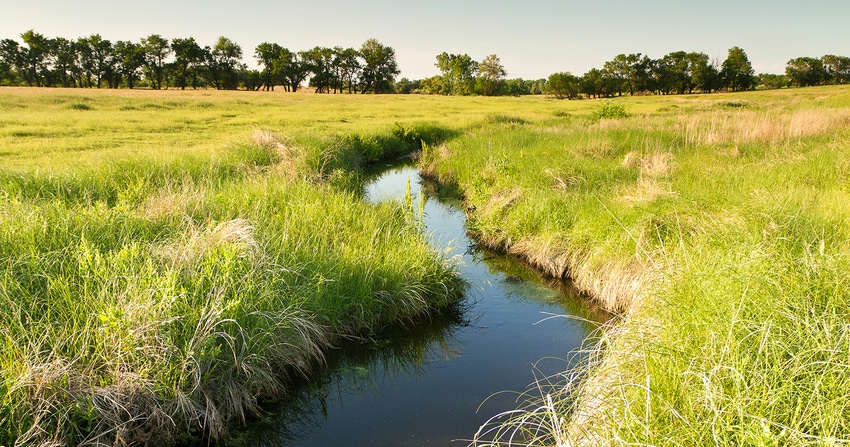November 16, 2022

Two Midsouth farmers working with AgriCapture’s Soil Enrichment Project have received carbon credits for regenerative agricultural practices under the Climate Action Reserve’s Soil Enrichment Protocol.
The Soil Enrichment Project becomes the second-ever to achieve carbon credit issuance through the Climate Action Reserve’s global carbon offset registry in less than a year. The carbon credits can be sold to buyers seeking to offset carbon-releasing practices.
In this case, the farmers, a cotton producer in Lee County and a rice producer in Monroe County in Arkansas, took actions that reduced the release of carbon dioxide in the rice field and increased the efficiency of fertilizer applications in cotton to prevent the release of nitrous oxide in the air in 2021.
“To generate the first registry-issued credits from the 2021 growing season less than a year after farmers completed harvest is proof that AgriCapture can deliver immediate results,” said John Farris, founder and CEO of AgriCapture. “As our programs expand, our team is creating credible, high-quality carbon credits in a space that hasn’t seen timely results until now.”
Pilot Project
Farris said AgriCapture set up a pilot project with the two farms in 2021 to test climate-friendly farming practices aimed at reducing greenhouse gas emissions. “Our team wanted to execute on creating registry-verified carbon credits before enrolling more farmers across the Midsouth.”
AgriCapture is continuing to expand its Soil Enrichment Project to more than 130,000 acres in the Midsouth and Southeast. Participants are implementing climate-friendly farming practices, including cover crops, reduced tillage, efficient fertilizer application, avoided burning and irrigation changes to reduce greenhouse gas emissions and sequester carbon.
The farmers receiving the credits began the program after planting in spring 2021. Efforts were ongoing through the growing season. Both have expanded their enrolled acres and combinations of the listed climate-friendly practices.
AgriCapture’s agronomist works with the farmers to “offer guidance for the implementation of practices, depending on the expected environmental and agricultural benefits,” the company said. “Our team collects data farm records, remote sensing, satellite imagery and soil sampling to verify farmers used the listed practices where appropriate.”
It then manages and packages the data to submit for third-party verification of environmental benefits before the Climate Action Reserve issues the carbon credits. Aster Global is providing third-party verification of AgriCapture’s carbon credit projects.
Offtake agreements
AgriCapture has arranged to sell the credits to their buyer network while exploring offtake agreements for the full project credit issuance, expected in June 2023.
In an offtake agreement, an interested buyer who needs to offset GHG emissions they cannot avoid will agree to forward purchase an expected number of credits to secure their purchase before AgriCapture produces and is issued the credits.
“This results in a secure price we can offer farmers per credit and encourages more farmers to enroll in our projects,” a spokesperson said, “As always AgriCapture doesn’t get paid unless the farmer gets paid, but it’s extra assurance that a buyer will purchase future credits at a set price.”
The issuance of the credits, which signify one ton of reduced CO2e, within one year of harvest makes AgriCapture the first company to successfully generate credits within one year, a milestone that represents a new, immediate revenue stream for farmers.
AgriCapture’s programs do not require any out-of-pocket expenses for farmers and it manages all farm data collection to submit for validation and verification of emission reductions with the Climate Action Reserve.
The Climate Action Reserve is a global carbon offset registry. Their protocols offer guidance on reducing GHG emissions or sequestering carbon through various practices. One of the more recent protocols is the Soil Enrichment Protocol which provides guidance on how to quantify, monitor, report, and verify agricultural practices that enhance carbon storage in soils or reduce on-farm GHGs.
AgriCapture said it has received strong interest for credit purchases and offtake agreements at $30 per credit.
The company has also been selected to participate in USDA’s Partnerships for Climate-Smart Commodities program to expand the market for Climate-Friendly Rice, one of about 70 projects selected for funding under the Inflation Reduction Act and with Commodity Credit Corp. resources.
For more information on the company’s projects visit www.agricapture.com.
About the Author(s)
You May Also Like






